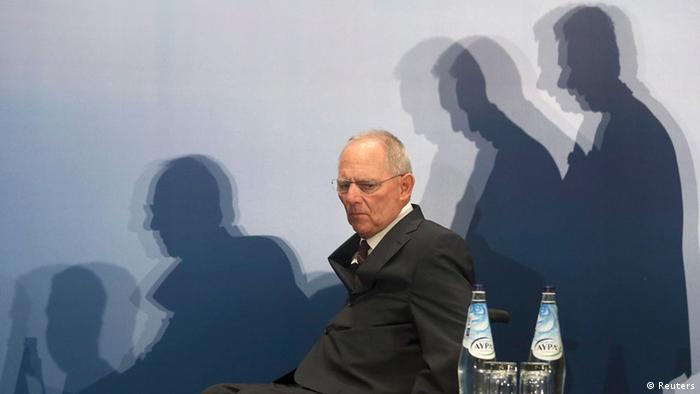German Finance Minister Wolfgang Schäuble, visiting Athens, has told Greece it has "little choice" but to continue with its austerity reforms. His words are unlikely to comfort people hit by the country's financial woes.
Talking to an audience of Greek businessmen, Schäuble praised Athens for trying to balance its budget, saying it had taken "big steps" in this direction.
But he also told Greeks in no uncertain terms that they should not continue calling for a second write-off - or "haircut" - on public debt after a restructuring last year that inflicted huge losses on private sector bondholders.
"My advice is not to continue this discussion," Schäuble told the packed venue. "We have to stick to what we've achieved. Anything else is not in the best interest of Greece. Another haircut beyond the 53 per cent for the private sector is not doable."
More than 90 per cent of Greece's debt is now held by official lenders such as the euro zone and the International Monetary Fund. This means any further debt relief will become the burden of euro zone states.
'No shortcuts'
Schäuble also told the debt-stricken country that it had no other option than to continue on its course of economic austerity, despite the hardship that it was causing.
"There is no way around structural and fiscal reforms that are currently being carried out," he said. "The only way to achieve sustainable growth is to make the economy competitive and reduce public deficits."
He added, "There is no convenient shortcut. We Germans know this. Ten years ago we were the sick man of Europe. We had to take a long and painful path to become the very center of growth and anchor of stability in Europe."
Schäuble's visit comes a day after the Greek parliament narrowly passed a bill that will lead to the firing of thousands of public sector workers to secure a further 7 billion euros (9.2 billion dollars) in debt aid.
Public outrage
As the bill was being discussed, unions called a general strike and thousands of Greeks took to the streets in protest at austerity measures they see as too rigorous.
Unemployment has surged to 27 per cent, living standards have dropped, and the suicide rate has risen, leading to near-daily protests and strikes.
In part, Greeks blame Germany's insistence on fiscal rigor for their problems, and Schäuble is a frequent target of criticism. Some 3,500 police are being deployed in the streets of Athens during his visit, and demonstrations have been banned.
tj/rc (Reuters, AP) dw de


No comments:
Post a Comment